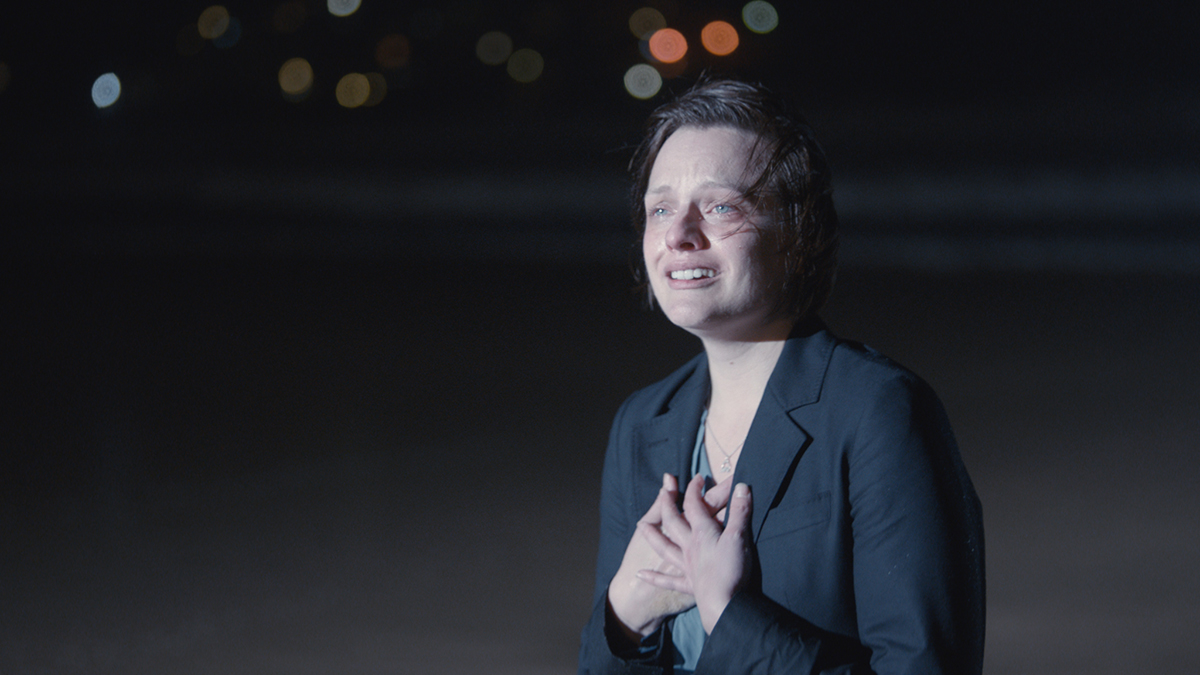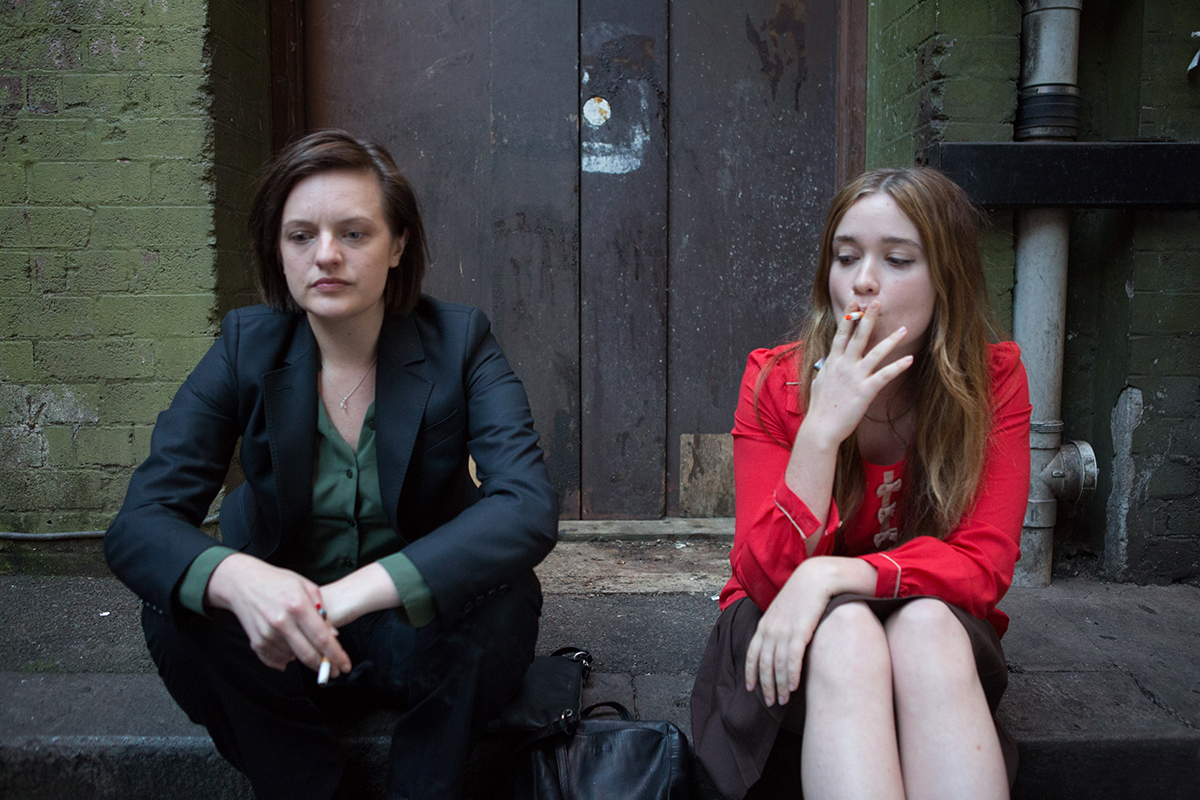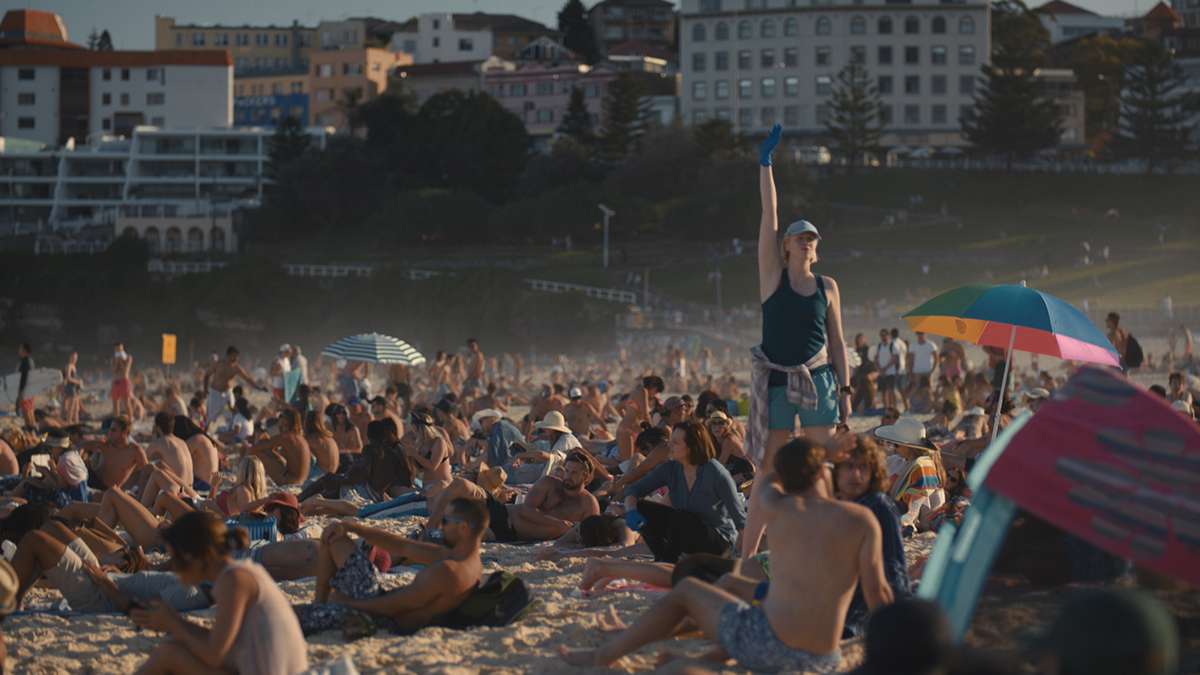
Top of the Lake: China Girl: Beauty concealing violence
In the opening moments of its first season in 2013, Top of the Lake sets itself at the fringes of a brutal story — a young girl, alone, seems to be contemplating suicide in a lake. Wide shots of a mountainous region are filled with a dense low-hanging mist, the landscape almost white, which then lifts as the day breaks and reveals the ground’s rusty covering of grass. The young girl, 12-year-old Tui (Jacqueline Joe), was pregnant, but couldn’t explain how she became so, and the explicit details of a local paedophile ring remained unknown until the final episode. This was a television series distinctly attuned to the atmosphere of a remote wilderness. With a mystery at its core, it was clearly dedicated to beauty concealing violence and corruption masked by visual tranquility.
Top of the Lake: China Girl, the new season from creator Jane Campion and co-writer Gerard Lee, immerses the viewer in a much darker atmosphere, and in the opening moments of the first episode, the brutality of Campion’s Sydney is immediately unveiled. In darkness and in silence, a man and woman take a heavy suitcase from a brothel, Silk 41, walk through a cemetery on a bayside cliff and throw it into the water, where the camera cuts to it plunging through the ocean’s mesmerising blue depths. Sea life swims calmly past. A little later, a thick lock of hair escapes from a crack in the suitcase. It’s a sinister opening.
Set approximately four years after the end of the first season, China Girl falls into some repeated narrative tropes. A central mystery is investigated by Robin Griffin (Elisabeth Moss) at a new precinct as Detective Senior Constable. There’s another sexually menacing antagonist with long hair and a foreign accent, this time the German intellectual Alexander (David Dencik). There’s another male senior colleague who is not always supportive, and more cold, sterile rooms in a police station. This time, the criminal investigation probes a death in Sydney’s migrant sex worker trade — a storyline heavily criticised by sex workers in Australia, for prolonging and enabling harmful stereotypes — and a troubling illegal surrogacy industry. In its Sydney setting, Top of the Lake’s pacing and visual composition are driven by the native speed of a highly populated capital city. Integrating these factors into the narrative, Campion and collaborative director Ariel Kleiman demonstrate skill in the conceptual use of screen space to evoke the claustrophobia of a busy mall and crowded beach.

Elizabeth Moss, Alice Englert, Top of the Lake: China Girl
In terms of story, too many easy coincidences beggar belief. In the first season’s setting of the small New Zealand town of Laketop, a small cast of players was believable, but not so in Sydney. Given Campion’s catalogue of rich narratives that usually don’t shy away from complexity, this is really disappointing. Yet I can forgive the absurdity and even clunkiness of some of the plotting, and the unlikely conclusion, because Campion gives Elisabeth Moss another opportunity to portray Robin Griffin. Her face brims with sensitivity, intense trauma, fear, strength and naïve hopefulness. Where the writing might lack nuance, Moss brings to the series a devastating emotional reality. I have barely stopped thinking about her since watching it.
Robin has returned to Sydney, a hometown no longer her home. She is not warmly welcomed at the workplace, but her small apartment welcomes her nightmares. It is not a place of refuge; the gothic sensibility, key to so much of Campion’s work, resides here. The motif of a body of water as a possessor of power rises up as a consistent thread between the first and second seasons; the ocean is often filmed in close-up, the camera attuned to its beauty and darkness. The sea rings out with that eternal note of sadness evoked by 19th-century poet Matthew Arnold in “Dover Beach.” Water enthralls, in centuries of literature and mythology, and Campion has clearly been drawn to its visual and sensual effects ever since her feature debut, The Piano (1993). As the body in the suitcase is taken in and then offered up by the ocean current, drifting onto Bondi Beach, the second season earns its right to the aqueous resonances of the title.
The series still rings with the reserved anger that Robin feels, every day, towards the systemic professional and personal discrimination and harassment she experiences as a woman. I lost count of the number of these moments; there are too many, not because the writing is obvious, but because this is what it is like for women, especially in certain professions and cultures. Her male subordinates still treat her with aggressive disrespect and resist her skill as a detective. Robin’s senior, Adrian Butler (Clayton Jacobson), doesn’t believe that Al Parker (David Wenham) sexually assaulted Robin back in New Zealand, and has an essential inability to understand female experience. Another consistently harasses her for a date, ignoring her refusals, and there is an explicit sense that women must constantly fight to be heard. A reluctant case partnership with Miranda (Gwendoline Christie) provides both comedy and distress, as the two women somewhat awkwardly and frustratingly navigate their way in a world that men are hesitant to give up.

Elizabeth Moss, Gwendoline Christie, Top of the Lake: China Girl
Robin has also returned to Sydney to find her daughter, Mary (Alice Englert), given up for adoption 17 years earlier. Reuniting the two brings up Robin’s past as rape victim and birth mother, and along with the show’s focus on surrogacy, Campion also offers variegated accounts of difficult parental experiences, a theme made stronger by Nicole Kidman playing Mary’s adoptive mother Julia, who has separated from her husband and now lives in a secure lesbian relationship. A recalcitrant teenager, Mary resists Julia because of it and searches for comfort in Robin, a decision that no one prepared for.
Dynamics between mothers and daughters are always fraught, and Campion weaves in a lot of thorny material here that intensifies maternal tension. The show sides with both mothers and judges neither. In conversation at the Melbourne International Film Festival in July, Jane Campion commented on her desire to confront the strong and powerful drives in motherhood which both Robin and Julia fear and struggle with. Their unwanted and unpleasant relationship, imposed by Mary, is the show’s most daring, and exciting, provocation.
While there is not a lot of detective work in Top of the Lake: China Girl, which the creators acknowledged at MIFF, there is an increase in dramatic moments. This means that the show proceeds at a faster pace, akin to the conventions of an episodic procedural series, but lacks some of the first season’s more restful, reflective moments. Part of that season’s satisfaction was the slow terror with which the plot unfolded, but the elements that tie this new case together are a little too simply determined, and tonally, its fluidity could be experienced as erratic.
Beyond depicting the lives of sex workers as essentially and stereotypically dangerous, Campion’s feminist focus figures the world as a treacherous place for all women, as long as men are blind to their own misbehaviours. That is the show’s strength.
As a crime series, Top of the Lake: China Girl is uneven and tonally a little scattered. But even in its first season, the show was always more interested in a psychological examination of characters and relationships. The second season amps this up, and the key characters are its real focus, with the criminal scenario diffused. Given its focus on a dynamic group of women, the series makes a necessary contribution to Australia’s screen culture right now. The final episode of Top of the Lake: China Girl ends on a true cliffhanger; an unknown figure stands behind a closed door. Unlike the finale of the first series, it seems almost certain that we can expect to see some of these characters again.
–
Top of the Lake: China Girl, co-creator, co-writer, director, executive producer Jane Campion, co-creator, co-writer Gerard Lee, co-director Ariel Kleiman, performers Elisabeth Moss, David Wenham, Gwendoline Christie, Nicole Kidman, Ewen Leslie, Alice Englert, Clayton Jacobson, executive producers Emile Sherman and Jamie Laurenson; distribution Foxtel, from 20 Aug
Top image credit: Elizabeth Moss, Top of the Lake: China Girl






